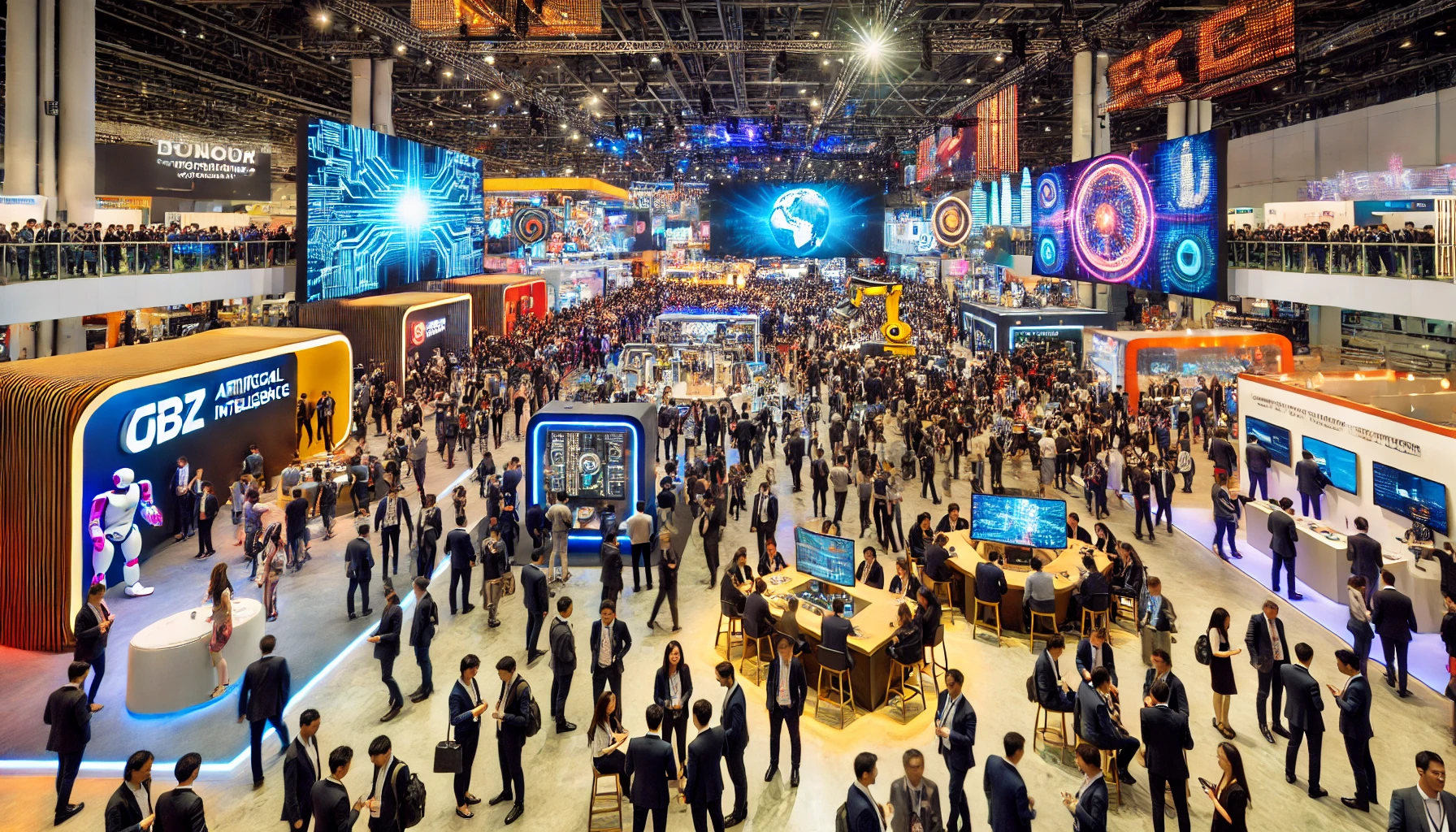
Web Summit '24
A Short Summary of a Big Event
The 2024 Web Summit, as promised, showcased fascinating and undeniably crucial discussions and demonstrations about the future of technology, highlighting themes such as
artificial intelligence, which featured prominently in almost every project presented, robotics, design, and the future of the
web. The event offered a comprehensive view of the trends and challenges shaping the current technology sector, bringing together well-established and influential companies as well
as startups and innovative projects. It also maintained what I consider its most significant feature: the opportunity to interact with people from all over the world, sharing
unique knowledge and perspectives.
Design and Creativity
In this area, AI's relevance lies primarily in tools that support designers. Many companies are now focused on developing such tools, with NVIDIA standing out at this event. The
company invited all attendees, especially those less familiar with art and design, to try out
the Canvas, a tool that transforms a simple sketch into creative images based on the user's chosen context and theme. This
presentation is an excellent example of creative applications in this field, where collaboration between designers and AI enhances the optimization of creative processes, elevates
the quality of solutions and results, and redefines the boundaries of digital design.
Advances in Robotics
In robotics, several companies are already well-known for their offerings in this sector. At the Web Summit, discussions focused on areas like medicine and utilities.
Neura Robotics took the stage to present its advances in integrating AI into physical systems, creating cognitively capable robots that can perform
everyday tasks autonomously. This integration promises to revolutionize interactions with robotic technologies, facilitating the automation of domestic and professional activities.
Projected prices for these robots range from $5K to $15K, depending on the model and the number of arms integrated, making them accessible to a broader audience.
Augmented Reality
Niantic, already well-known for projects like Pokémon Go, impressed attendees with a remarkable demonstration: they brought a prototype of a one-person drone and offered the experience of piloting it in augmented reality. Additionally, they showcased their 8th Wall platform, which enables the creation of AR projects, provides examples of already-built projects, and offers access to various tutorials on the platform and its themes, democratizing access to this technology.
Developer Experience
In terms of tools geared towards development, the innovations didn't stray far from what was already known. Companies like Zen Coder offer a co-pilot embedded within repositories (GitHub or others) that accesses all projects and files to facilitate agent training and improve development efficiency. Locofy also presented an interesting solution that, if it works as expected, could be a significant advantage for companies. Their product is a Figma plugin capable of scanning screens and generating layouts in multiple languages, promising faster and more efficient development.
The Future of the Internet
Sir Tim Berners-Lee, creator of the World Wide Web, presented an innovative proposal for the future of the internet (Web 3.0), suggesting a system of digital wallets for centralized storage of personal data. The proposal envisions AI managing this tool to make it easier to use. Fundamentally, this model aims to return control of data to users themselves, offering a more secure and transparent alternative for online privacy while also improving the customization of user experiences.
Sustainability and Technology
Fortunately, sustainability also took center stage at the event. Alongside numerous startups (such as Jila, Build.ing, and many others) focused on missions and concepts related to sustainability, major companies like Impact Labs and InnerPlant presented solutions for global environmental issues. Impact Labs offers specialized consulting services for implementing sustainable technological practices, while InnerPlant develops innovative solutions to increase agricultural efficiency, addressing resource waste and optimizing harvests.
Ethics in AI Usage
As expected, AI was indeed the main focus, discussed from various perspectives across numerous projects. In contrast to all these innovations and advancements, the ethics of implementing AI-integrated technologies received less visibility but was brought to the forefront. Concerns about how policies from the Trump administration might hinder progress in this field were also highlighted. The Future of Life Institute stood out as one of the key organizations committed to raising awareness and proposing solutions in this domain.
The 2024 Web Summit reinforces the idea that technology is a dynamic and multifaceted force. We are at a critical juncture in the creation of technology, and it is increasingly evident that this entails significant responsibilities. I emphasize the importance of ethical and responsible development to ensure a positive impact on society, the planet, and especially on the people who rely on the systems being created and hope for a future where daily life can be facilitated, and tasks can be automated in a healthy, safe, and efficient way for everyone.


